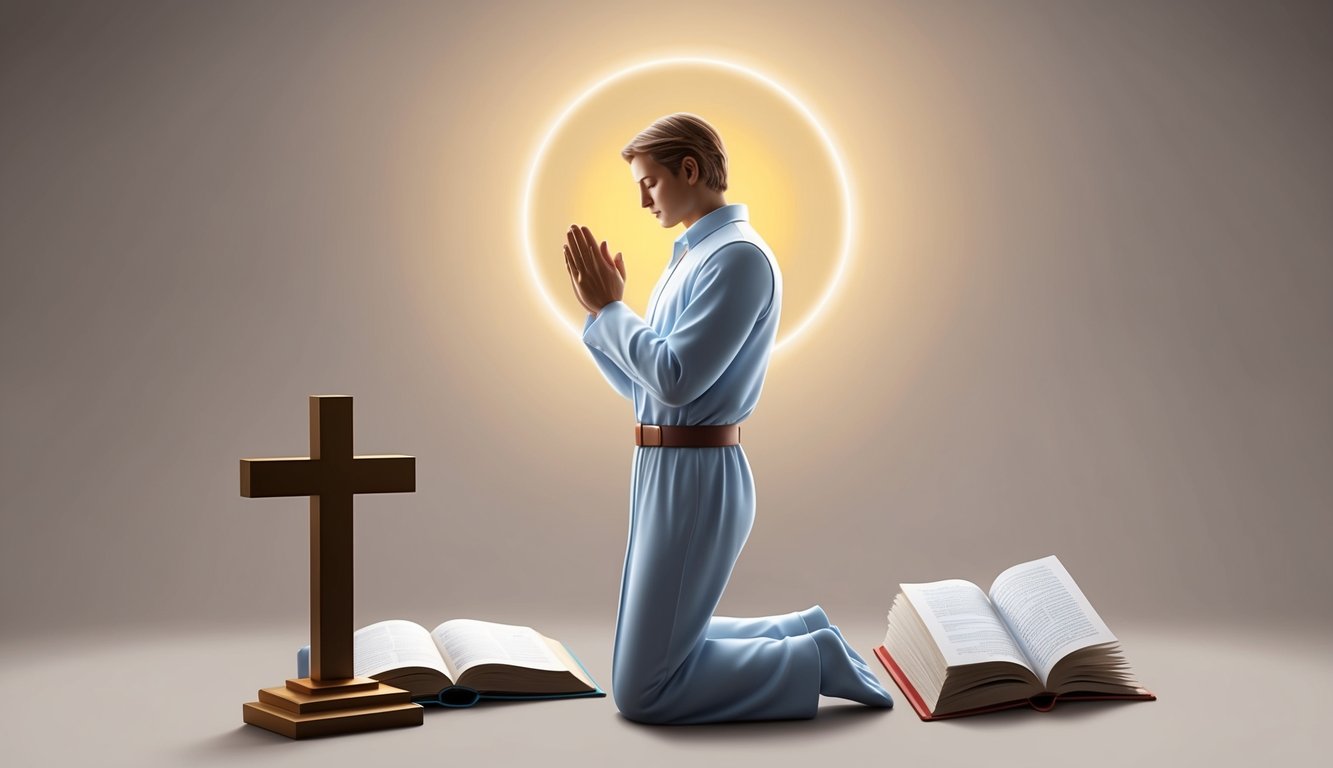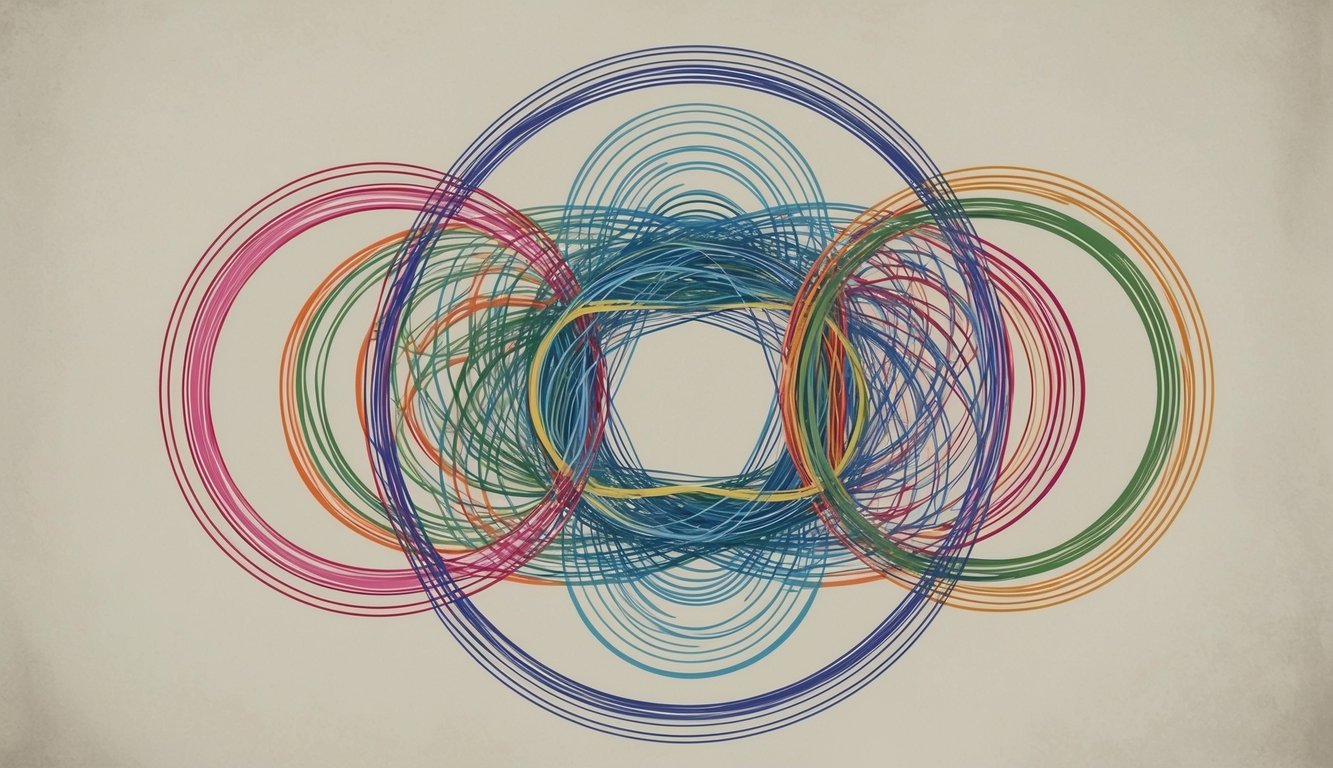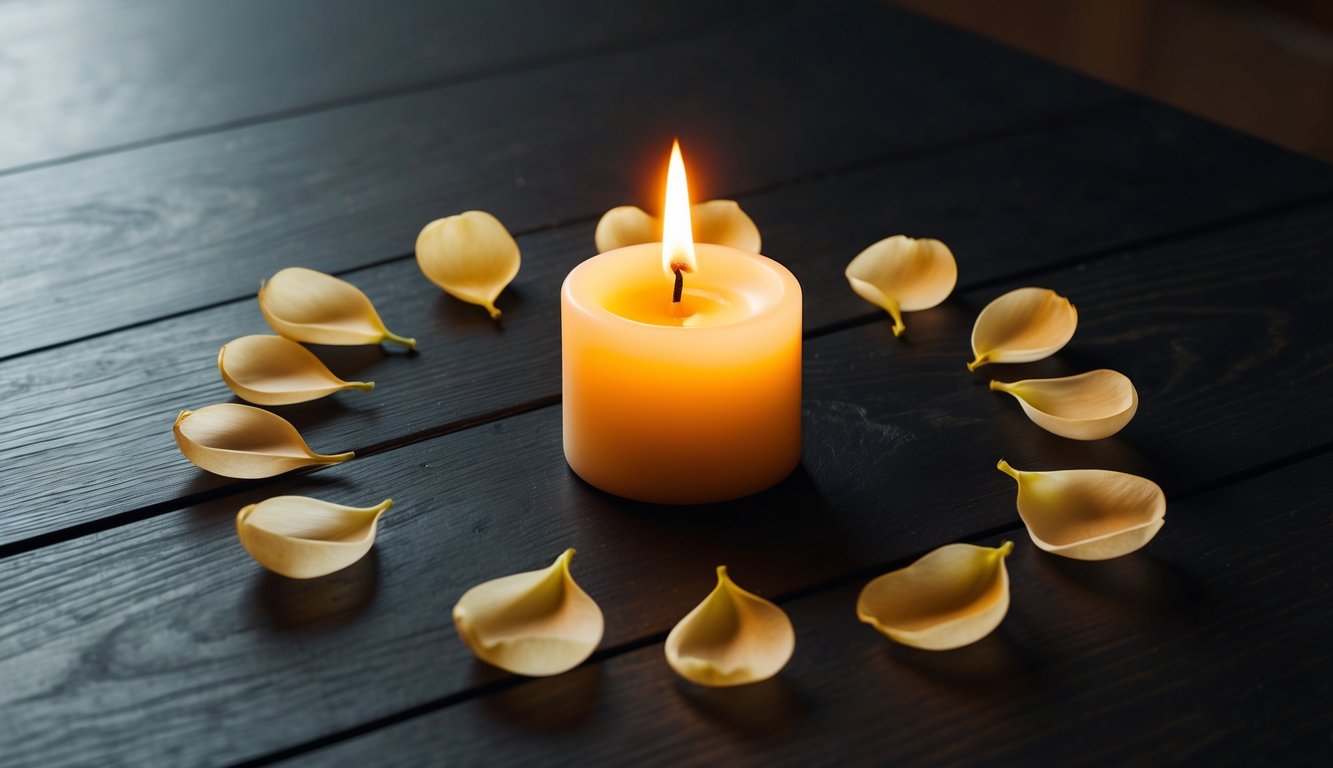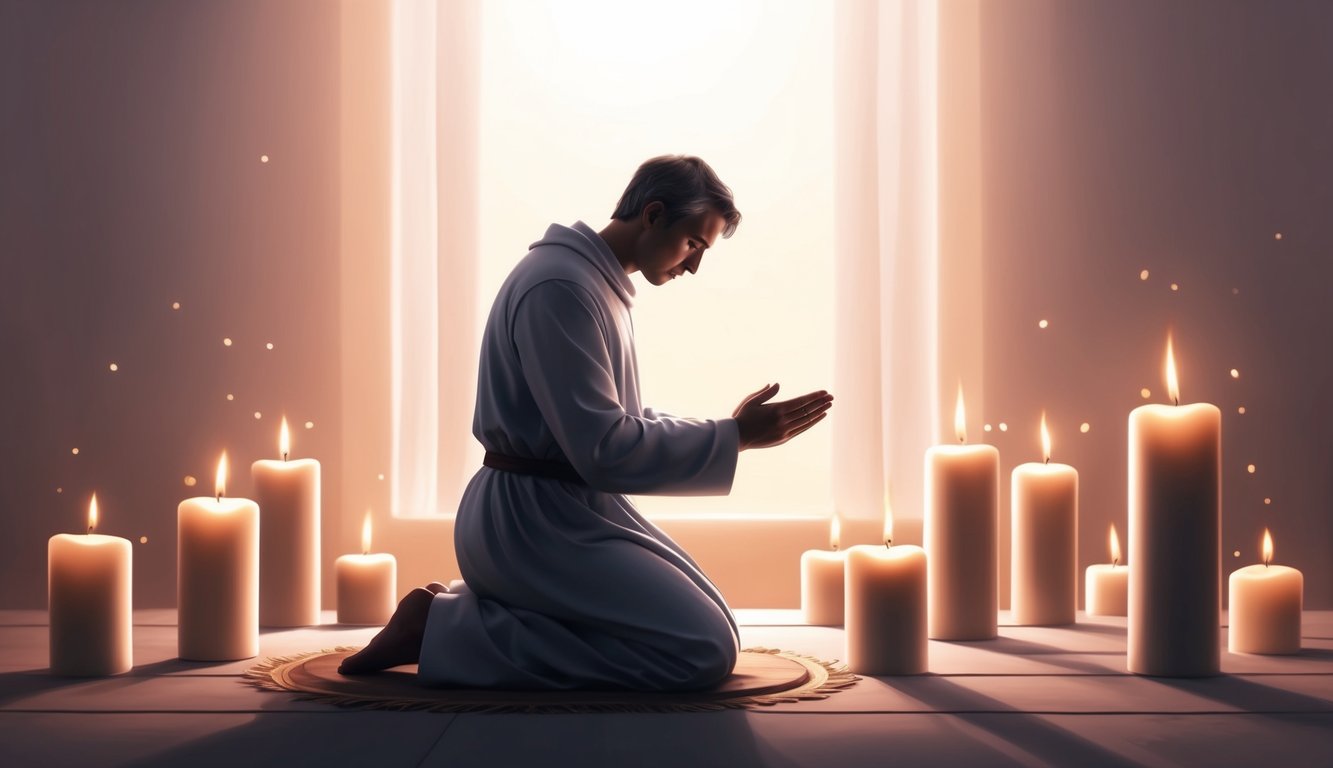Don’t Miss Out On This Unique Astrological Opportunity
Are you tired of spinning your wheels and getting nowhere? Simply put, you’re out of sync: you’re out of alignment with your astral configuration.
But: there’s a kind of map that can help you reclaim your alignment. Think of it as your own personal blueprint to success and happiness: a blueprint that will help you live your most amazing life.
Get started here.
The Novena of Surrender is a unique prayer practice that invites you to place your trust fully in a higher power.
This spiritual journey of surrender involves praying with an open heart, allowing you to let go of control and embrace faith. When you practice the Novena of Surrender, you learn to accept that whatever comes your way has a purpose, helping you find peace and clarity.
The origins of this novena are deeply rooted in the teachings of faith and trust.
It encourages a personal and transformative relationship with one’s spirituality.
By participating in this novena, you not only seek answers but also learn to live with uncertainty, knowing that surrender can lead to deeper understanding and acceptance of life’s challenges.
Engaging in the Novena of Surrender can greatly influence your spiritual path by providing practical steps to let go of anxiety and fear.
This practice, by focusing on prayer and trust, can help you navigate life’s ups and downs with renewed strength.
By integrating these concepts into your daily life, you can cultivate a more peaceful and centered mindset.
Key Takeaways
- The Novena of Surrender encourages trust and acceptance.
- It provides a framework for coping with life’s challenges.
- Practicing this novena can deepen your spiritual connection.
Origins and Significance of the Novena

The Novena of Surrender holds deep spiritual meaning, originating from the life and teachings of Don Dolindo Ruotolo.
Exploring its historical and spiritual roots uncovers insights into faith and divine trust.
This section covers key aspects including the life of Don Dolindo, the context in which the novena developed, and its spiritual foundation.
Life of Don Dolindo Ruotolo
Don Dolindo Ruotolo was a Neapolitan priest known for his profound faith and spiritual insights.
Born in Naples, his life was marked by a deep connection to the divine.
Don Dolindo emphasized surrendering to God’s will, which he believed opens the way for grace and miracles.
He led a life of simplicity and prayer, offering his own struggles as a path to holiness.
His teachings encouraged others to place their worries in Jesus’ hands, much like Jesus did on Calvary.
This surrender to divine will was a consistent theme in his work.
Don Dolindo’s influence extended beyond Italy, inspiring many to embrace a spiritual practice rooted in trust and faith.
Historical Context
The Novena of Surrender emerged during a time when the world faced significant struggles, including the rise of Communist tyranny in Europe.
In these periods of turmoil, many sought solace and hope through spiritual practices.
Faith became a source of strength as people looked to figures like Don Dolindo for guidance.
The novena provides believers a structured way to place their burdens on God’s shoulders during difficult times.
It was during Lent that the novena resonated strongly, as it aligned with the theme of surrender and reflection.
While rooted in historical challenges, its message remains relevant, encouraging believers to entrust their lives to divine providence.
This practice of dedicated prayer fosters a sense of hope and perseverance, reminding the faithful that they are not alone in their struggles.
The novena to Our Lady of Mount Carmel is a powerful example, offering comfort and guidance to those seeking the intercession of the Blessed Mother.
Through this devotion, believers deepen their faith and find strength in God’s unwavering love.
Spiritual Background
Spiritually, the Novena of Surrender reflects a deep trust in Jesus and the divine works He performs.
It emphasizes the importance of letting go of worldly concerns to receive God’s grace.
Practicing this novena invites you to join with Our Father and Mother Mary in a journey of faith and trust.
This spiritual act of surrender leads to personal transformation.
By releasing worries, you allow space for divine intervention.
As faith grows, so does the ability to see miracles in everyday life.
The novena’s spiritual foundation encourages a relationship with God that is anchored in peace and divine connection.
Theological Foundations of Surrender

The concept of surrender in theology often revolves around divine providence, enduring suffering, and the act of placing trust in God.
By understanding these elements, you can find peace even amid life’s challenges.
It encourages a deep relationship with God that fosters spiritual growth and inner calm.
Concept of Divine Providence
Divine providence refers to God’s omnipotence and His continuous involvement in creation.
You are reminded that God is always in control and has a plan for everything, including your life.
The practice of prayer and saying the Rosary can help you stay connected to this divine guidance.
God’s grace helps you recognize moments where you can surrender your worries to Him.
By doing so, you may experience peace as you trust in a higher plan.
This reliance on God’s providence encourages humility and an abandonment of the idea that you must control every aspect of your life.
Role of Suffering and Tribulation
Suffering and tribulation play significant roles in spiritual growth and the development of faith.
They often lead you to examine your own soul and recognize the need for repentance and trust in God.
By enduring hardship, you may become more empathetic and compassionate.
Being a victim soul, or willingly accepting suffering, can be seen as a way to share in Christ’s passion.
This idea does not glorify pain but rather shows how tribulations can bring about greater goods and draw you closer to God.
Facing adversity with trust can diminish the power of evil and Satan in your life.
The Power of Trust and Repentance
Trusting in God means letting go of your fears and anxieties, believing that He will guide you to what is best.
This trust is not passive but requires active faith and constant effort in prayer.
Through true repentance, you acknowledge your shortcomings and seek God’s forgiveness, which can renew your spirit and strengthen your relationship with Him.
Trust counteracts worry and provides you with a sense of peace, freeing you from the hold of negative forces.
By embracing trust and repentance, you align yourself with God’s will, allowing His omnipotent love to transform your heart.
Such transformative experiences are vital in your journey toward deeper faith and spiritual maturity.
Practical Aspects of the Surrender Novena
Engaging in the Surrender Novena can bring peace to your daily life.
The practice revolves around praying with faith, embracing surrender, and finding calm amidst anxiety and confusion.
How to Pray the Novena
To begin, you should pray the Surrender Novena for nine consecutive days.
Each day includes a specific prayer dedicated to letting go of your worries and placing trust in divine guidance.
Start by finding a quiet place where you can reflect without distractions.
The prayer focuses on entrusting your troubles to God, asking for His intervention and care in your difficult situations. Repeat phrases such as “Jesus, you take over,” which is central to the novena.
This repetition helps center your mind and invites a sense of peace and presence.
Embracing Daily Surrender
Daily surrender is about letting go of control and accepting that not everything is within your power.
This approach encourages you to live in the present moment, rather than being overwhelmed by anxiety about the future.
To cultivate this mindset, integrate short moments of reflection throughout your day.
When faced with stress or nervous feelings, pause and inhale deeply, reminding yourself of your daily intention to surrender.
This practice builds resilience and promotes a peaceful life, helping you navigate through difficult challenges even during a pandemic or other stressful occurrences.
Overcoming Anxiety and Nervousness
The Surrender Novena can be a powerful tool for overcoming anxiety and nervousness.
By focusing on surrender, you put trust in a higher power, alleviating feelings of fear and confusion.
Whenever anxiety arises, use the novena’s prayers to refocus your thoughts and energy.
This helps transform anxious moments into opportunities for spiritual growth and healing.
Regularly engaging with these prayers can lead to a more centered and peaceful life.
By practicing surrender, you encourage a mindset that allows you to handle nervous feelings and approach life’s challenges with calm and confidence.
Influences and Connections

The Surrender Novena has touched many lives through its message of letting go and trusting in a higher plan.
Several individuals and practices have been inspired by its teachings, resulting in heartfelt stories and unexplained miracles.
Figures Inspired by the Surrender Novena
St. Padre Pio, known as a miracle worker, often spoke about trusting in the Lord’s path.
His life is an example of embodying the surrender and love present in the novena.
His followers often find peace through this devotional practice.
Similarly, others in religious communities have been influenced by the novena’s call to let go of worldly attachments and to embrace spiritual poverty as a means to truly belong to the divine.
Integration with Other Devotions
The Surrender Novena often complements other Catholic devotions, like the Eucharist and prayers dedicated to Mary.
This integration enhances spiritual life by teaching believers to combine surrender with adoration and love.
Many find that the novena’s focus on surrender helps deepen their connection to the Eucharist.
This reflects a fuller understanding of divine grace and acceptance, enriching the rewards of their spiritual journey.
Testimonies and Miracles
Many testimonies describe the profound impact of the Surrender Novena.
Stories often involve miraculous recoveries and personal transformations attributed to its recitation.
Believers speak of unexpected rewards, grace, and solutions to problems after they surrender their worries.
These experiences continue to inspire faith, as readers learn how deep trust and abandonment to the divine can lead to tangible outcomes in their own lives.
Frequently Asked Questions

The Novena of Surrender is a spiritual practice that involves specific prayers over nine days.
It often involves stories of personal transformation and miracles.
These frequently asked questions help clarify the practice and its significance.
Who was Father Dolindo Ruotolo, the author of the Surrender Novena?
Father Dolindo Ruotolo was a Catholic priest known for his deep spirituality and writings.
He authored the Surrender Novena, emphasizing self-surrender to divine will as a path to inner peace.
What are the specific prayers for each of the nine days of the Surrender Novena?
The Surrender Novena involves a series of prayers recited over nine days.
Each day’s prayer builds upon the last, focusing on trust and letting go of personal control while asking for divine guidance.
In what ways are people said to have experienced miracles after praying the Surrender Novena?
Many individuals report experiencing profound peace, resolution of personal issues, and even miraculous outcomes in their lives after completing the Surrender Novena.
These accounts often speak to the power of surrender and faith.
Can the Surrender Novena prayers be legally accessed for free online?
Yes, the prayers of the Surrender Novena are available online for free.
Several religious websites offer them for free download and reading, ensuring broader access to those interested in this spiritual practice.
How can someone practice self-surrender according to the principles of the Surrender Novena?
Self-surrender involves letting go of worries and control, trusting in divine guidance.
This is practiced by reciting the prayers with an open heart and mind, seeking to embrace faith and inner peace.
Has the Surrender Novena been officially recognized or endorsed by the Catholic Church?
The Surrender Novena is a well-known prayer practice among Catholics.
It may not have official Church endorsement, but it is respected and widely used within the Catholic community for personal and spiritual growth.



